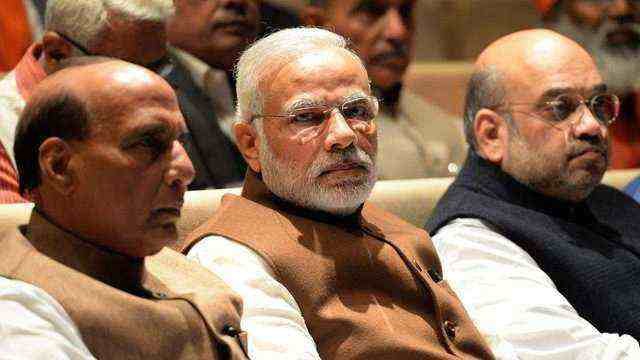
In what can be classified as another pro-poor move months ahead of the general elections, the central government is considering extending the Right of Children to Free and Compulsory Education up to Class XII.
"A proposal regarding extension of the Right of Children to Free and Compulsory Education (RTE) Act, 2009, is under consideration of the ministry. Any decision in this regard would be intimated, once it is examined thoroughly," The ministry of human resource development said in a letter to education activist Ashok Agarwal.
The RTE Act currently applies to children between six and 14 years studying from Class I to VIII. It requires all private schools, except for minority institutions, to reserve 25 per cent seats for underprivileged children.
The active consideration of the proposal to extend it to higher secondary classes comes within a month of the Centre introducing 10 per cent reservation for economically weaker sections among the general category, which is being seen as a game changer for the BJP’s poll fortunes as it placates the disgruntled upper castes.
The proposal to extend the scope of Right to Education has been in cold storage for a long time, and has been revived ahead of the elections. A sub-committee of the Central Advisory Board of Education (CABE) had recommended the extension of the RTE Act in 2012, when the UPA was in power.
In March last year, HRD minister for state Satya Pal Singh had informed Parliament that there was no proposal for extending the ambit of the RTE Act.
The demand was revived by a petition filed in May last year in the Delhi High Court.
In November, Ashok Agarwal, who is an advocate in the Delhi HC, highlighted in a letter to HRD minister Prakash Javadekar on behalf of the All India Parents Association that once EWS category students complete class VIII, schools ask them to either pay the fee from next class or leave.
It was submitted to the ministry that after a student has studied in English medium unaided private schools, he or she has only the option to join a government school.
“Since government schools are Hindi and vernacular medium the same would only be highly prejudicial to the interest of such student but would also defeat the very objective of providing free education in private unaided schools," it argued.
The letter added, "It becomes difficult to adjust in government school environment. Such students should be given be given opportunity to complete their education."


.jpeg)

